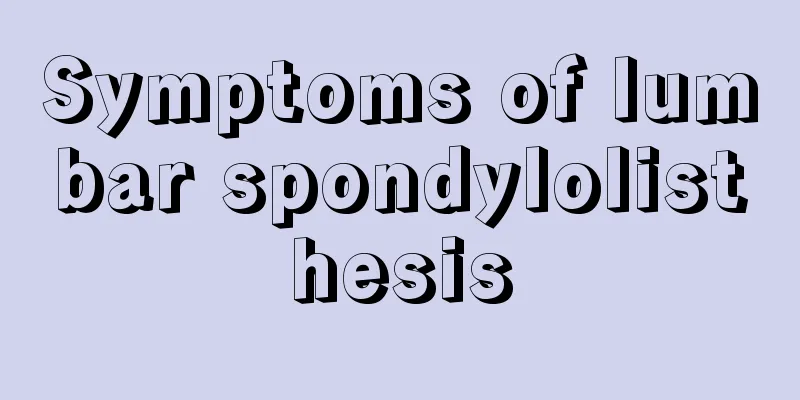What does shortness of breath feel like

|
Shortness of breath is a very common symptom. Many people experience shortness of breath when they suffer from heart disease or chest disease. Of course, some physiological factors, such as staying in a confined space for too long, can also cause people to experience shortness of breath. For physiological shortness of breath, you just need to change your environment in time. Pathological shortness of breath requires timely treatment! 1. What is the feeling of shortness of breath? Chest tightness and shortness of breath is a subjective feeling of difficulty breathing or insufficient breath. Those with mild symptoms will feel nothing serious, but those with severe symptoms will feel uncomfortable, as if a stone is pressing on their chest, and may even have difficulty breathing and cause chest tightness and shortness of breath. 2. Causes of chest tightness and shortness of breath There are two causes of chest tightness and shortness of breath. One is functional chest tightness and shortness of breath, and the other is caused by cardiac neurosis. Functional chest tightness: refers to staying in a room with closed doors and windows and poor air circulation for a long time, or encountering some unpleasant things, or even quarreling or arguing with others, or being in a climate with low air pressure, which often causes chest tightness and fatigue. Cardiac neurosis: It is a type of systemic neurosis with various symptoms. The most common symptoms are palpitations, dyspnea, precordial pain and general fatigue. There are also symptoms such as irritability, insomnia, sweating, trembling, dizziness and nightmares. 3. Treatment of chest tightness and shortness of breath 1. Psychotherapy: adjust the mentality, relax the spirit, eliminate worries, cultivate an optimistic and open-minded character, and maintain a good mood. A good mood is conducive to the coordination and unity of the nervous system and various organs and systems, so that the body's physiological metabolism is in the best state, thereby feedback-enhancing the vitality of brain cells and improving nerve function. 2. Physical exercise: Physical exercise can regulate and improve the excitement and inhibition process of the brain, adjust brain function, In addition, exercise can significantly change a person's mood. Long-term exercise can enhance physical fitness, improve cardiovascular function, enhance the regulatory function of the autonomic nervous system, and restore autonomic nervous function. 3. Drug treatment: Patients with symptoms of β-receptor hypersensitivity such as palpitations, chest tightness and shortness of breath, easy sweating, and long exhalation can take diazepam 2.5 mg or propranolol 10 mg orally (or atenolol 12.5~25 mg 1~2 times/day). |
>>: Red spots and itchiness on the body
Recommend
The correct way to remove dead skin from the soles of your feet
It looks ugly when some dead skin grows on the so...
Who is not suitable for traction for lumbar disc herniation
Most patients with lumbar disc herniation will be...
Three signs that indicate getting older
What women cannot tolerate the most is signs of a...
Can taking dandelion lower blood pressure?
Dandelion is a common plant in our daily life. Pe...
What are the methods for radical cure of osteosarcoma
We all know that disease is of no benefit to peop...
How much does it cost to treat nasopharyngeal cancer? What are the low-cost treatment methods?
How much does it cost to treat nasopharyngeal can...
What to do about noise pollution? These can help you
Noise is a frequency of sound waves. This frequen...
What to do if a dialysis patient vomits
Nowadays, there are many diseases that are very d...
How to improve digestion and absorption function
Maybe many of us have recently experienced indige...
Can patients with thyroid cancer smoke?
It is generally not recommended for thyroid cance...
Prevention measures for gallbladder cancer
Primary gallbladder cancer is relatively rare in ...
Can severe periodontitis be cured?
Teeth are a very important part of our body. If h...
What are the hazards of breast cancer puncture
What are the hazards of breast cancer puncture? T...
The poop is black and green?
Everyone knows that normal stool should be yellow...
What are the hazards of paraquat poisoning pulmonary fibrosis
Paraquat is a pesticide widely used in rural area...









